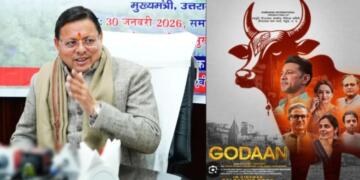In today’s rapidly evolving business landscape, supply chain expertise is becoming increasingly vital for organizations seeking to stay competitive. From CMMS planning to lean manufacturing, industry leaders are sharing valuable insights on optimizing supply chain processes. In this article, we delve into the world of supply chain management and uncover the top strategies from a seasoned expert. With a focus on efficiency and cost-effectiveness, our industry leader offers invaluable advice on how to streamline operations and improve overall productivity. By harnessing the power of a computerized maintenance management system (CMMS) and implementing lean manufacturing principles, companies can reduce waste, optimize inventory, and enhance customer satisfaction. Our expert shares real-world examples of success stories and practical tips that can be implemented across various industries.
In Bhargav Bachina’s professional journey, he traversed from the foundational role of a software engineer to assuming leadership responsibilities as a senior software engineer. Along the way, he managed teams and mentored interns, gaining valuable experience in project management and leadership. Sharing the insights became a natural progression, leading to documenting his knowledge through a series of 650 articles on Medium, which have been positively received within the industry. Currently, Bhargav contributes to the startup ecosystem as a software architect, spearheading the development of innovative projects and solutions.
Throughout the expert’s career, he spearheaded numerous large-scale projects, both within organizations and as an entrepreneur. Among these endeavors, the establishment and growth of his startup stand out as the most significant. Within this venture, he led a team of approximately 20 individuals, guiding them through intensive training in cutting-edge technologies such as React, Node.js, Azure, Cloud Computing, Nest.js, and ArgoCD. Beyond training, Bachina’s responsibilities extended to designing and architecting the entire software solution, from front-end development using React to constructing a robust backend with Nest.js. The backend infrastructure was deployed on Kubernetes, configured for automatic scaling to meet fluctuating demand levels. This project showcased his technical expertise and also highlighted his leadership capabilities in orchestrating modern, scalable web architectures. It served as a valuable proof of concept for strategies and techniques that he now advocates in his role as a software architect.
Early in his career, he confronted the challenge of transitioning a web application from Spring MVC to an Angular Single Page Application (SPA) in 2013, at a time when SPA frameworks were still emerging. This endeavor demanded extensive research, thorough documentation review, and rigorous skill development, as none of his team members had prior experience with SPA implementation. Converting the entire application to Angular not only introduced a new technology but also required a deep understanding of client-centric architectural principles. This project catalyzed honing his skills in building efficient web applications, including optimizing API interactions and enhancing loading times. Buoyed by the success of this venture, he undertook another project with React, further refining Bhargav’s expertise in leading projects with prominent JavaScript frameworks. These early, hands-on experiences laid a robust foundation for his growth as a software engineer and later as a software architect, providing him with the confidence and skills necessary to navigate complex architectural decisions effectively.
In the realm of the subject matter at hand, his contributions span various platforms and mediums. He has authored numerous research papers published in esteemed journals such as the Electronic Journal of Advances in Engineering and Technology (EJAET) and the Journal of Software Engineering and Applications Research (JSAER), covering topics ranging from engineering advancements to software development methodologies. Additionally, he shared insights and expertise through a prolific collection of over 600 articles on Medium, addressing diverse aspects of the field. Furthermore, Bhargav’s active engagement on GitHub showcases his commitment to collaborative software development, with a portfolio of over 350 repositories and a substantial following of 445 enthusiasts. These achievements emphasize his dedication to advancing knowledge and innovation within the domain, while also fostering collaboration and knowledge-sharing within the professional community.
Bhargav Bachina’s wealth of experience in software architecture and development has yielded a treasure trove of insights that transcend the confines of corporate realms, resonating profoundly with societal and global dynamics. His distilled wisdom serves as a guiding beacon for navigating the ever-evolving landscape of technology and innovation. Through a lens of practical implementation, Bhargav emphasizes the transformative power of experiential learning and adaptive decision-making, offering a roadmap for individuals and organizations alike to thrive amidst rapid change. His advocacy for continuous learning underscores the imperative of embracing lifelong education as a means to stay relevant and resilient in an era of perpetual flux. Moreover, Bhargav’s emphasis on fostering growth opportunities and nurturing talent not only cultivates future leaders but also fosters a culture of empowerment and inclusivity, enriching communities at large. By championing constructive communication and work-life integration, he fosters environments conducive to holistic well-being and collective advancement. In essence, Bhargav’s contributions transcend the boundaries of professional spheres, permeating societal fabrics and shaping the trajectory of human progress in an increasingly interconnected world.
These principles, cultivated through years of hands-on experience throw light on Bhargav Bachina’s journey and offer invaluable guidance for aspiring software architects, enabling them to thrive amidst the complexities of contemporary software development. Embracing and accepting these practices empowers individuals to build resilient, adaptable careers poised for success in the ever-evolving tech landscape.






























